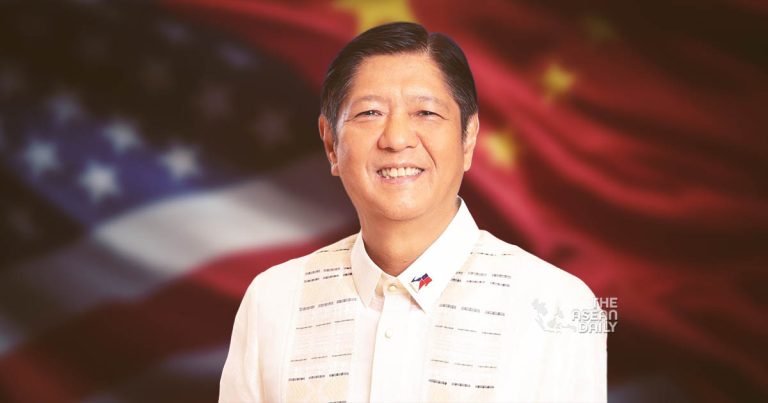15-8-2023 (MANILA) The Philippines has unveiled a six-year national security policy aimed at fortifying its capacity to address threats while emphasizing the importance of strengthening alliances with partners, all within the framework of an independent foreign policy. The 48-page National Security Policy, recently endorsed by President Ferdinand Marcos Jr, underscores the evolving dynamics of global strategic competition, particularly between the United States and China, as well as intensified rivalries among major powers, contributing to a heightened geopolitical landscape.
The document recognizes the “sharpening strategic competition between the United States and China” and acknowledges that “heightened rivalries among the major powers” have led to a more complex and potentially volatile international environment. Specifically, it points out that the Cross-Straits relations, particularly in the context of the Taiwan Strait, have the potential to become a flashpoint in the region. The document underscores the Philippines’ concerns about economic stability, potential refugee inflow, and the well-being of its overseas populations in the face of regional tensions.
The growing military activities by Beijing around Taiwan, which it considers as part of its territory, have escalated concerns. The United States and its allies, including Japan, have criticized China’s assertive actions in the region. The Philippines expresses its apprehensions about the implications of any military conflict in the Taiwan Strait, emphasizing the geographic proximity of Taiwan to the Philippine archipelago and the significant Filipino community in Taiwan, numbering over 150,000 individuals. Given that the Philippines’ northernmost islands are only 190 kilometers away from Taiwan, any conflict could have direct repercussions on the Philippines.
The National Security Policy also highlights the Philippines’ commitment to ensuring its food and energy security. Additionally, it identifies the South China Sea as a primary national interest and addresses the challenges posed by territorial disputes and the divergent claims in the region. The document underscores that these challenges risk undermining territorial integrity and people’s rights, particularly in relation to the ongoing disputes between the Philippines and China over certain portions of the South China Sea.
In pursuit of energy security, the government has outlined its intention to explore the development of offshore energy reserves, including those located within the South China Sea. This strategic move aims to decrease the country’s dependence on energy imports, thereby enhancing its resilience in the face of energy-related challenges.
Notably, the National Security Policy acknowledges the evolving nature of the Philippines’ relations with China under the leadership of President Ferdinand Marcos Jr. The policy reflects a pivot back towards the traditional ally, the United States, as the Philippines seeks to strengthen its strategic and defense ties. It articulates the intention to bolster the Mutual Defense Treaty with the United States, as well as other existing mechanisms with regional partners. These efforts are aimed at enhancing the Philippines’ defense capabilities and credibility in the region, ensuring its ability to navigate various security challenges effectively.




